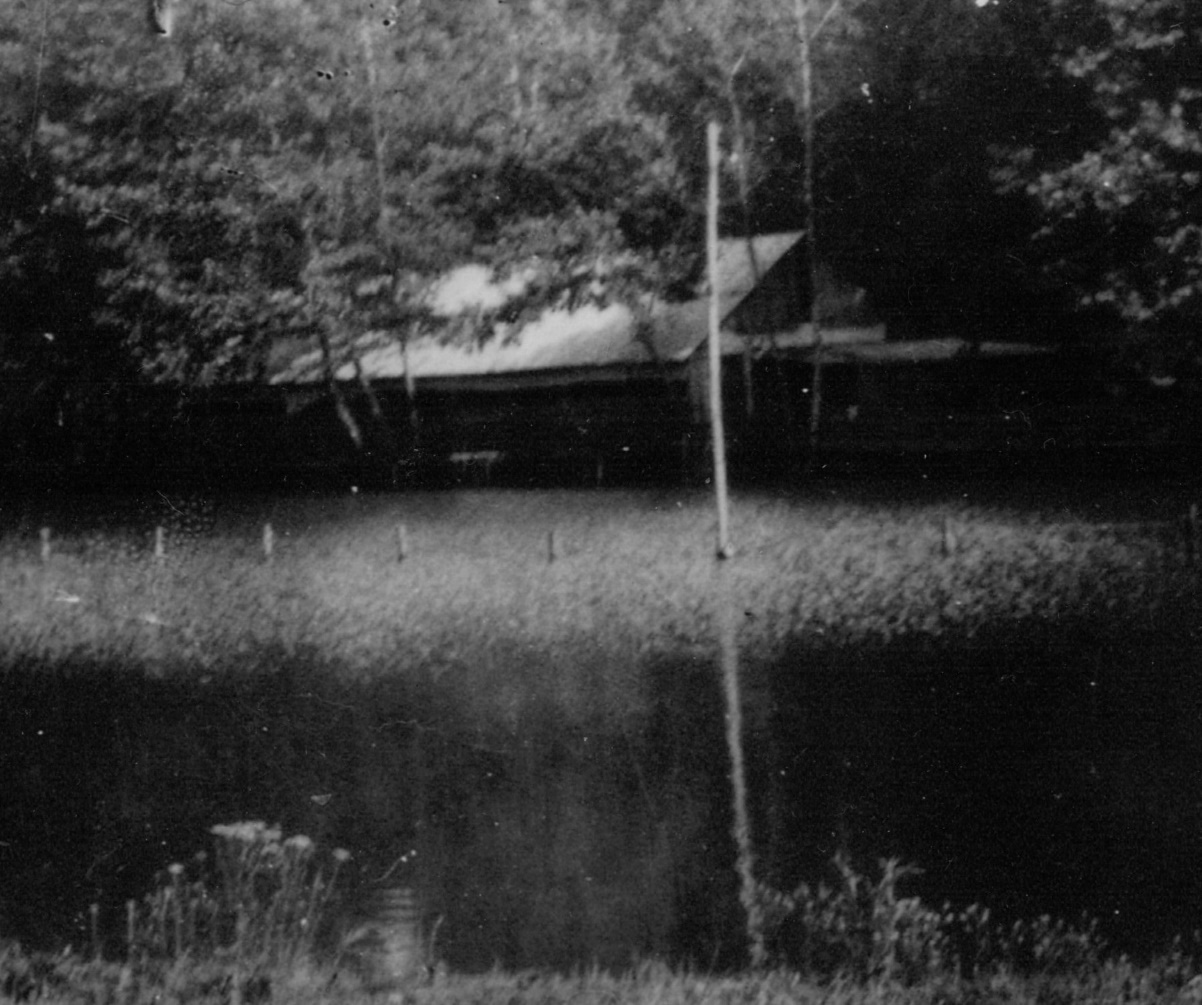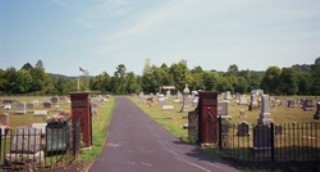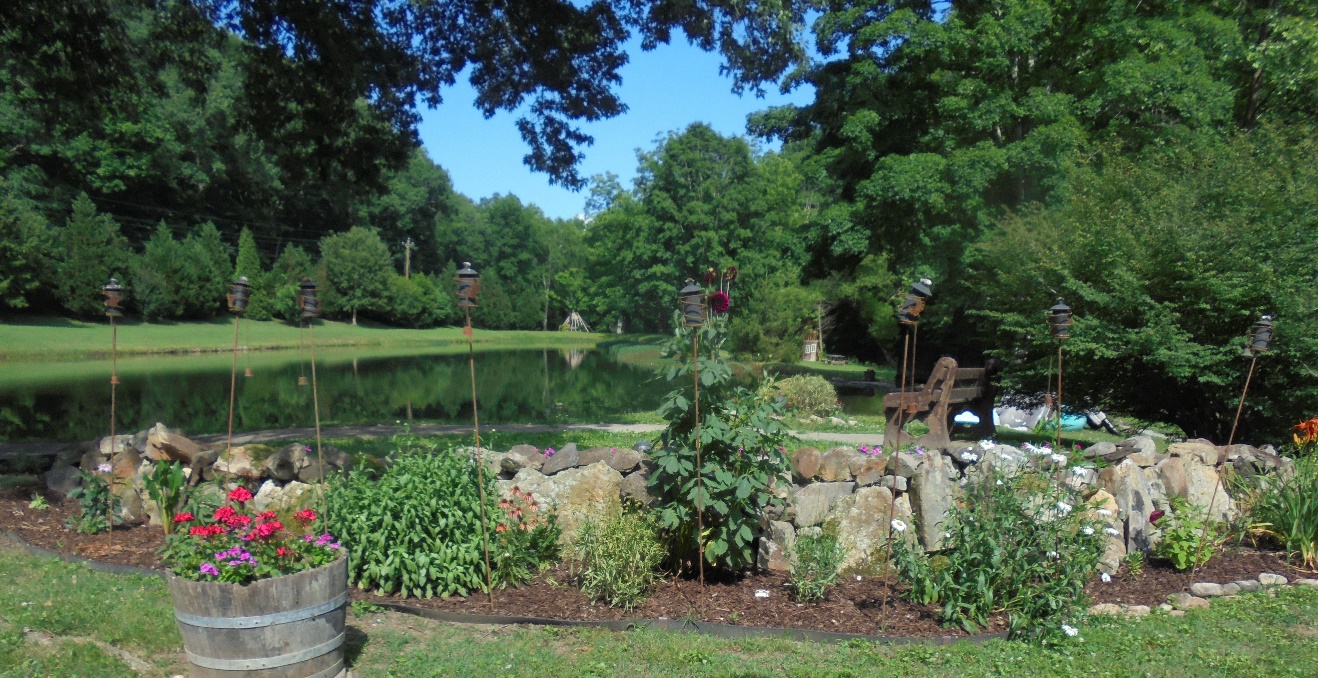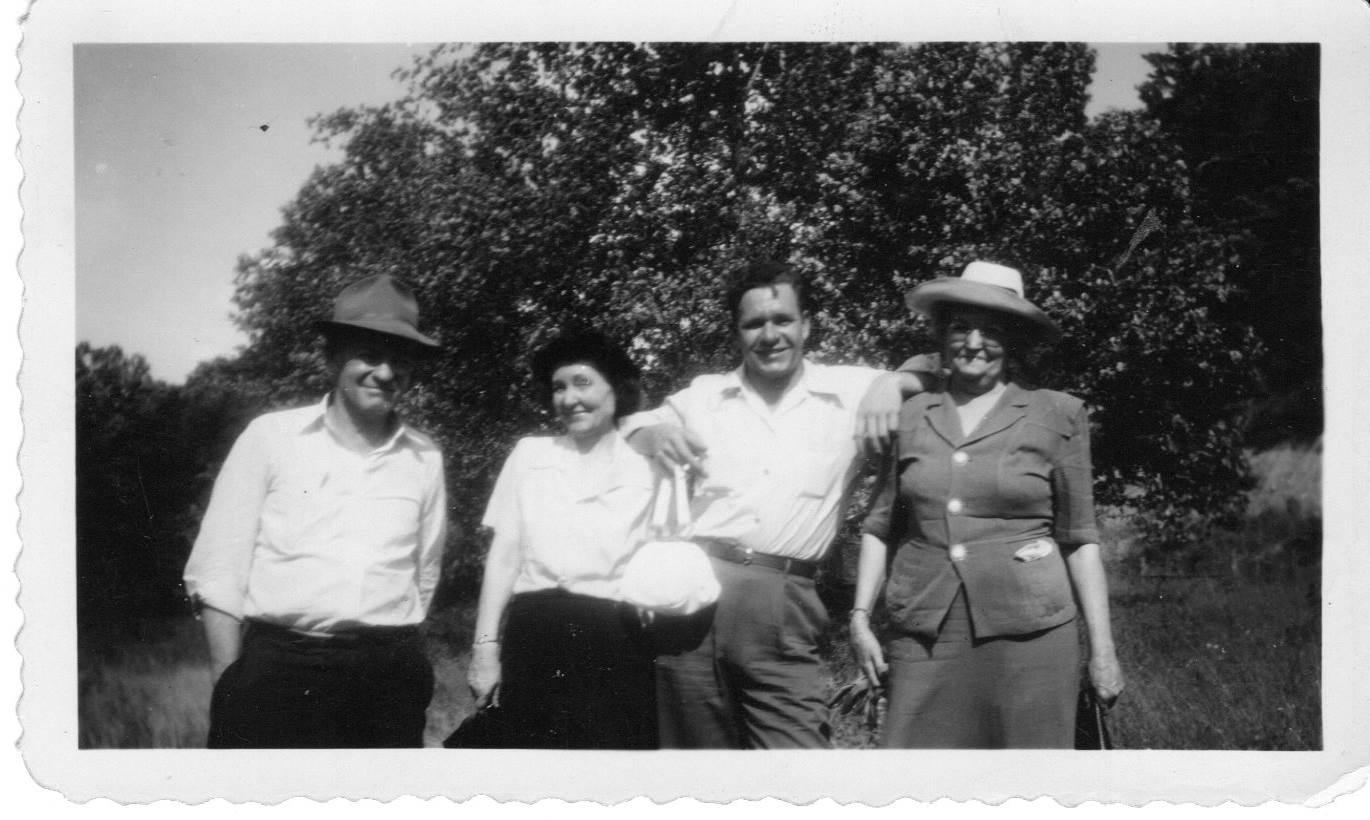JOHN SETTERS WAS WAITING FOR A GREYHOUND BUS WHEN HIS HEART STOPPED. HE FELL FROM THE WOODEN BEER CASE HE WAS SITTING ON AND, IN LESS THAN A HEARTBEAT, ESTHER BECAME A WIDOW, OR, IN REALITY, WHAT SHE HAD BEEN, ALL ALONG.
John Setters probably hadn’t known that tonight was Halloween. He probably didn’t know, or care, that TRICK OR TREAT, one of Halloween’s traditions actually began in America the year his third son was born, in 1927, exactly twenty years ago. He was sitting outside the front door of Louis Zimmerle’s beer hall, just three miles from the Lake, when he took his final breath. He was fifty-five years old. He was sitting on an empty wooden beer case, waiting for a greyhound bus, when his heart stopped. He was born in 1892 when an article in the Newport Rhode Island Newspaper printed this sentence: A baby boy born this year can expect to live 48 years. A baby girl born this year can expect to live 51 years. — Source: National Center for Health Statistics. John, although not living as long as today’s male, (75.1 years in the first half of 2020) lived longer than the statistics at the time of his birth his birth had projected.
Beer was not available in cans before 1935 and beer bottles were transported in wooden cases. The beer joint was busy, so John didn’t lie there on the ground, very long. He was less than a mile from the grave of his step-grandmother and about three miles from the tombstones of Louisa and Leander Setters, his grandparents, and Jim, his father, who had died at the age of 69. John was on his way back to his sister Bertha, with whom he was living at the time, at 1116 Buchanan Street, his wife Esther and their three sons had moved about five years earlier, from the house on Little Marrowbone Creek. All three sons were now in the Military, the two older ones having fought in the second World War.
John died exactly three months before the death of Orville Wright, one of the famous aviation Wright brothers. Neither had completed high school, John had told his youngest son one day that he had wanted to fly. Orville, of course, did fly. John and little Monk (my nick name as a little boy) were walking down the road one day when a small plane flew over the Little Marrowbone Creek Hollow. Father and son watched the airplane until it disappeared over the hill, and then dad said to me, “If it weren’t for your Maw I could be up there.” I think I could find, now, the very place in the road he said that. I didn’t understand what he meant then, but I do now. My father blamed my mother, entirely, for her early pre-marriage pregnancy.
About fifteen years earlier, John would be at Zimmerle’s, have a beer or two, and somehow find a pint of whiskey and begin the three mile walk home, to Little Marrowbone. With unstable steps he would pass by Walter Bennett’s house, then Rosie Bennett’, Walter Schnups, Cora Conchin’s place, the Idas, down the steep Manny Ida Hill, find the shallow water places of Bill Henry Hollow, then Uncle Joe Mullens’, and Aunt Josie’s (Josophine’s log-house) and finally to the path that led him around the lake and to the nearly fallen down and darkened dance hall where he would sit and rest and maybe just lie down and go to sleep in that dark and quiet and empty building. No one really missed him. He would take a drink from his bottle, go to sleep and when he awoke, was not important. The world was simply passing him by.
Thirty years earlier John had served in the trenches of a war that was meant to end all wars, World War One; but his three sons, now, were thousands of miles away in a war that was just officially declared ended, World War Two.
 Bertha was not fond of Esther. In the obituary she had published in the paper, Esther’s name was not even mentioned. It was as though John had acquired his sons through adoption.
Bertha was not fond of Esther. In the obituary she had published in the paper, Esther’s name was not even mentioned. It was as though John had acquired his sons through adoption.
 John’s oldest son Harold in three years eleven months, after his dad died would shoot down a Russian MIG fighter plane from the B-29 bomber as it flew in the Korean war. John had placed in Harold’s hand the first gun he had ever fired, a sixteen-gauge double barrel shotgun. This time Harold was firing four fifty-caliber machine guns, and he wasn’t shooting squirrels, he was shooting at human beings. Just like he did while flying in World War II in Europe. John’s three sons were maybe on his mind, John knew they had turned out to be three good young men.
John’s oldest son Harold in three years eleven months, after his dad died would shoot down a Russian MIG fighter plane from the B-29 bomber as it flew in the Korean war. John had placed in Harold’s hand the first gun he had ever fired, a sixteen-gauge double barrel shotgun. This time Harold was firing four fifty-caliber machine guns, and he wasn’t shooting squirrels, he was shooting at human beings. Just like he did while flying in World War II in Europe. John’s three sons were maybe on his mind, John knew they had turned out to be three good young men.
It is sad that, as his heart stopped, and he fell to one side on the ground, and from that empty wooden beer case, that each one of his boys would want to be at his side to help him, to actually thank him, because they knew, in his heart, he really cared for them. John just fought a losing fight with the booze.
 Bertha had Esther notified about John’s dying, and although Esther went to the funeral, she also accompanied the rest of the family, by this time, only a few, went to Kentucky to the Bellevue cemetery.
Bertha had Esther notified about John’s dying, and although Esther went to the funeral, she also accompanied the rest of the family, by this time, only a few, went to Kentucky to the Bellevue cemetery.
In three weeks, it would be Thanksgiving. Again, one of the many times for Esther that it would be just another day. The love of her life, although it had had been many years since she had even touched him, was now gone.
Those three boys, now young men, were all in the military and somewhere on the ocean, somewhere in the Pacific Islands and China.
But they had survived the war, they wrote her letters, so this year, nineteen forty-seven, twenty-five years since she met that handsome young man in Florida was another one when she would be alone, but there were changes coming that she could not even dream of.
 Thirty years later Jim, John’s youngest, was gathering big stones for some work at his new home built by the lake. He knocked on the door of a house near Old Hickory Boulevard and the Clarksville Highway. A lady answered the door, Jim spoke his piece and she directed him to an old, abandoned school bus parked in their yard nearby. Jim was greeted by an older man.
Thirty years later Jim, John’s youngest, was gathering big stones for some work at his new home built by the lake. He knocked on the door of a house near Old Hickory Boulevard and the Clarksville Highway. A lady answered the door, Jim spoke his piece and she directed him to an old, abandoned school bus parked in their yard nearby. Jim was greeted by an older man.
Jim doesn’t remember the gentleman’s name who used the old school bus for a place to smoke, have a drink or two and to sit and talk with his old cronies. Jim explained what he was after and identified himself. The man was very friendly, and said,
“So, you are one of John’s boys?” Jim was then, about fifty years old. “I was one of his pallbearers at the funeral.” said the man.
(Which by the way, was held just about four blocks from 1116 Buchannan, in north-Nashville.)
“All of us pallbearers were about half drunk sitting there on the front row. It was getting too hot for us in the funeral parlor, and we walked out the side door into the parking lot. One of us said that it was a shame that we were all nearly schnockered and poor ole John was inside in a casket. Another said that it would not have bothered John, and in fact if he was there with us, he would be just like we were. John was a good man. I thought a lot of him.”
Bertha oversaw the funeral proceedings. The Nashville mortuary transported the casket to the railway station downtown, the pallbearers managed to place the casket on the railway cart, the casket was put on the train and John’s final journey—back to Kentucky—where it began, less than half a century ago.
The trip and burial took place the week of John’s youngest son’s birthday, November 6, 1947………just twenty years after Jim, was born. During the trip and burial, Jim was somewhere in the Pacific, in the Marines, Raymond was in the Navy, in the Caribbean. Years later, Raymond expressed bitterness about not being advised of his father’s death. Saying, “I would have been there.”
 Why was John buried at the Bellevue Cemetery in Boone County Kentucky? His father, grandfather and grandmother were all buried on Little Marrowbone. Louisa, his grandmother way back in 1890, then his dad in 1931 and Leander his grandfather in 1932. We have skipped over another member of the family that died just a year before John’s father, his mother, Carrie Belle. By now, Bertha was pretty much in charge of what to do with the dead. She had chosen Kentucky for her mother, and then seventeen years later, chose to bury her brother near their mother.
Why was John buried at the Bellevue Cemetery in Boone County Kentucky? His father, grandfather and grandmother were all buried on Little Marrowbone. Louisa, his grandmother way back in 1890, then his dad in 1931 and Leander his grandfather in 1932. We have skipped over another member of the family that died just a year before John’s father, his mother, Carrie Belle. By now, Bertha was pretty much in charge of what to do with the dead. She had chosen Kentucky for her mother, and then seventeen years later, chose to bury her brother near their mother.
Bertha, however, was buried in Nashville, Tennessee.
Did she choose to be buried there? Her father was buried on Little Marrowbone and her mother and brother, in Kentucky. We’ll probably never know why she was buried in Nashville.
The death ended the marriage of Esther and John although they had not lived together for seven or eight years. The two never indicated to others that they disliked one another. In fact, to the contrary. Esther, when she remarried to acquire security, confessed to one of her daughters-in-law that the love of her life was John. One of their three sons, Harold, the one born first, and born in Melbourne, Florida, only a few months after John and Esther, met, was the one who was able to have the two, pose together, in about 1946, for a photograph above, with Bertha.
Did they reflect on their lives? Did they agree to just give it up, never live together, again? We must wonder about the last time they saw one another. What did they say? Did they even touch? We will never know.
Other than their many arguments over his drinking and his lack of family material support, their sons never saw any indication that there was no love between them. Nor not a lot to show that they loved one another, either. The word love as has been said before in this story just didn’t get spoken in that house.
Although John never ever said so in so many words, but looking back now, it was apparent that he did respect his family. Although in the culture of the time, the word love was used sparingly. The boys were never told that they were loved, but there was never any doubt they belonged. That, in itself, too them anyway, was love.
John did not alienate himself from his family because of erratic behavior. He harmed no one, in fact those who remembered him, the ones he associated with out in the country, did so in kindness. He left a widow and three sons who did not dislike him or have feelings of disrespect. Certain aspects of the way he lived his life transferred to them. Thus, there were continued attitudes of caring, and a concern for others’ feelings and putting things back where you found them. In fact, as grown men, all had warm memories of their lives at the lake. Raymond had more admiration for his father than did Harold and Jim, although it was Harold that made the picture of Esther standing next to John possible several years after the family separated
Later, one of the three – your author– took his father to task for not using his many skills to make life easier for their mother and the rest of the family. But all three showed signs of wanting to return to the Lake. Harold tried, but he chose to make the Air Force a career. You will read about that career later, if you haven’t already. The other two were anxious to return, especially one of them. Eventually, one of the two made it.
That one is writing the story about all of this. You must find time to read it.
You’ll be amazed at how many people were involved in how this story evolved, and the rolls they played, as that little lake’s shores reached out to them.
That is why your author added these words to its title:
“ A pat on the fanny, The Corsairs will come, a penny postcard, five ponies and the wiggle of a toe.”